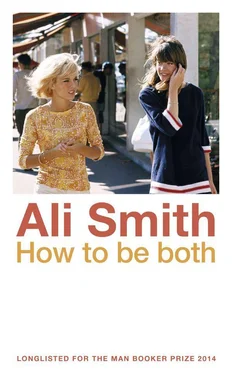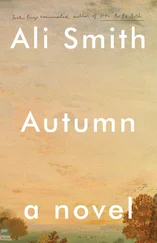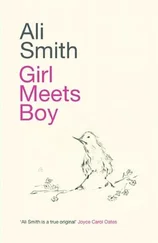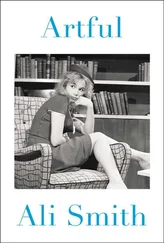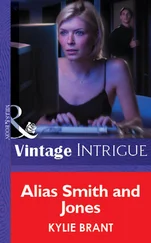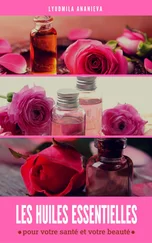And then, in my new roofless state, I said, what I do is, I drink this , yes?
Yes —, Barto said.
— and those same old rooftiles, I said, hoist themselves off the ground again all at once, all the tiles that haven’t broken and all the little broken bits, both, and they fly up like a skyful of stiff wingless birds back up to the open roof of me where they fix themselves back on, over and under all their old neighbours again? In exactly the same places?
I suppose, Barto said.
So what’s the point? I said.
The point? Barto said. The point is — obviously, Francescho, that moment , with all the tiles, I mean the memories, gone. That moment when you’re like before you were born. Like just newborn. Open to everything. Open to the weather. Everything new.
Ah, I said.
Open like a brand-new not-yet-lived-in home, Barto said. Clean like a wall that’s been returned to what it was like before the painting.
But then the roof, or the same old picture, lands right back on top of me again? I said.
Yes, but by the time it does you’ve had the moment without it, your clean moment, Barto said. And what happens in that moment is, the ritual starts its work, and I put you in the Chair of Mnemosyne, and you say out loud to the oracle on the table –
The eggs and the honey, I said –
Yes, Barto said, you tell them everything that’s come into your head. After that the memory can’t hurt you any more.
Ah, I said.
That’s how it works, he said. That’s the Rite of Mnemosyne.
Barto was my friend so he wished me well: it was a warm-hearted game, sweet, wholesome, funny and hopeful: but perhaps too, I reckoned — I suspected him of it — what he really wished was for me to forget my self so I might be another self to him.
More: I had seen depictions of that goddess Mnemosyne: I had seen how she would place her hand on the back of a man’s head and not just pull him by the hair but get a good handful and yank him nearly off his feet by the head and suspend him in mid-air as if hanging him for a crime: she was not a restful spirit: she was tough and wiry and dark: the scholars and poets thought her the mother of all the muses, even the inventor of words themselves: I didn’t want to offend in any way such a spirit.
— then I take you home to your house, Barto was saying, we put cushions under you, you sleep it off, and then you wake up feeling better, Barto said.
All just from me drinking water, I said.
You’ll see, Barto said.
So I picked up the first cup: but what if I did by chance drink the forgetting and the remembering the wrong way round? I might end up roofless and open for ever, no memories at all of anything ever again: what I would give, to forget everything: cause as I know now from this place of purgatorium this would be a kind of paradise, since purgatorium is a state of troubling memory or the knowledge of a home after home is gone, or of something which you no longer have in a world which you recognize to be your own but in which you are a stranger and of which you can no longer be a part.
Here, my father’d said to me once, soon after I announced to him that I’d stop being his apprentice, that I thought myself ready to do without guardianship being well past 2 decades old.
He handed me a folded piece of paper which, when I unfolded it, was worn to a thinness through which actual light came cause of the too many times unfolded then folded again in its time spent as a fragile thing in the world.
I flattened it gently in my hand and I read what it said in the faded ink in an immature hand which sloped up in a curve at the ends of the lines: its writer had made no preparation for keeping his line of words steady as small children are taught to do with the mark of a straight line to follow.
Forgive my insolence if indeed it be insolence but I have held it all this time wrong of you: so much so that I have been unable some nights to sleep well for thinking on it: that you did strike me on the head that day for the pictures I had made of you in the soil and dust: honoured illustrious and most beloved of all fathers I beg of you do not think to strike me that way again: unless of course justly I deserve your wrath which in this instance I maintain it, I did not.
What is it? I asked him.
You don’t remember? he said.
I shook my head.
You were small and I taught you to write, he said, and this is what you first wrote.
!
I looked at the paper in my hand: I’d have sworn my life on that I had never seen it before: yet this was my own writing.
So much we forget ourselves in a life.
I looked at how I held it, my child’s hand in my adult hand, and thought how much paler the paper was in my father’s: cause my own skin was light, white as any lady’s compared to the skin of my father and brothers after the years of weather and work and firing of bricks, all of which will turn skin to a brown quite close to the red of the bricks themselves: my father was proud of my pale skin: to him it was achievement: with my pale hands I folded the paper again and held it out for him to take back.
It’s yours, he said. If you’re leaving my tutelage, then I give into your care what little I still have of your child self. It also holds your mother in it, who will have helped you fashion it, cause you were very young when you wrote this and the sentences have her turn of phrase about them, as well as — look, here, here and here — her habit of putting these 2 dots between clauses where a breath should come.
It’s my habit too, I said.
He nodded. He took another paper from his sleeve pocket and held it out to me.
Yours too, he said.
What is it? I said.
The contractual agreement, he said. We made it when you were a child. Remember?
No, I said.
You sign it here, and here, he said, and I do too. We take it to the notary and he witnesses us sign it. And when he does — that’s it. You’re your own man at last.
He raised both eyebrows and regarded me with comic warmth, and then me him with warmth too, and for a moment a happiness that was also made of some sadness between us.
But I was gone soon after on my new horse, I’d a life to live and a different city to work in and Florence to visit and Venice to see and was no longer apprentice to anyone.
Old father, old brickmaker.
Young gone brickshaper mother who never grew old.
3 years later I came back to the town cause I’d heard there might be work going at the palace of beautiful flowers and cause Cosmo was working on the muses and I might get the chance to work with Cosmo: I’d seen a small crowd of boys down the side of the cathedral throwing stones at a ruined serf, old man in torn cloth pulling by hand a cart loaded with the dregs of household stuff: it looked like he was stopping passers to sell them the things in the cart: he’d reach behind him, take whatever came to hand, a piece of old something, cloth, a cup, a bowl, another bowl, a footstool, a chairleg, plank of wood, and hold it up and offer it: a person took something and didn’t pay: the next people pushed him out of the way: people went past him as fast as they could in a kind of panic: except the boys: the boys followed him and threw stones and insults: he was a stranger Jew or infidel, or a gypsy or wood dweller maybe: there was fear of the blue sickness in town, there was always fear of it even when there’d been no sign of it in the people for years: but a man acting fevered always drew a sharp attention: it wasn’t till after I’d gone, was a mile or 2 away, that I knew I’d recognized the last thing I’d seen him take from the cart and hold up: it had been a stonehammer: I went back along the road to the cathedral but he was gone: the boys too had gone: what I’d seen had vanished as surely as if I’d invented it.
Читать дальше
